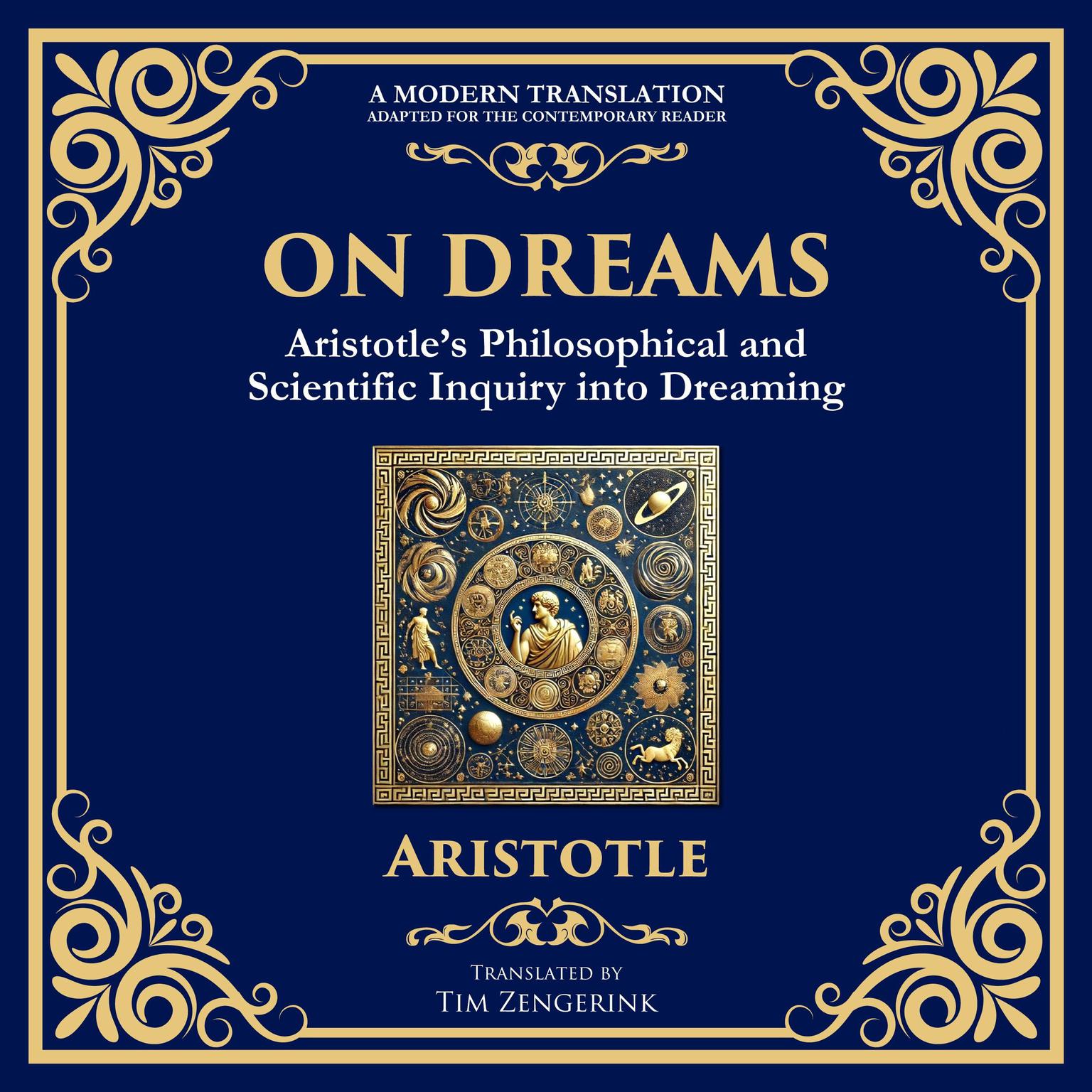 Play Audiobook Sample
Play Audiobook Sample
On Dreams: Aristotle’s Philosophical and Scientific Inquiry into Dreaming Audiobook
 Play Audiobook Sample
Play Audiobook Sample
Quick Stats About this Audiobook
Total Audiobook Chapters:
Longest Chapter Length:
Shortest Chapter Length:
Average Chapter Length:
Audiobooks by this Author:
Publisher Description
What if you could decode your dreams to gain clarity, inspiration, and profound insights about your life?
In this classic treatise, Aristotle investigates the mysterious realm of dreams, exploring their origins, nature, and significance. Adapted for modern readers, this work merges philosophical curiosity with early scientific thought, guiding you toward a deeper appreciation of how dreams reflect our minds, experiences, and innermost thoughts.
What You’ll Discover in This Modern Translation:
- The possible functions and causes of dreaming
- Aristotle’s early scientific approach to interpreting dream phenomena
- How dreams link to memory, perception, and imagination
- Timeless perspectives that resonate with modern psychological studies
Imagine tapping into the wisdom of your subconscious for problem-solving, creativity, and personal growth. Aristotle’s analysis offers a unique window into the mind’s nightly theater, providing timeless ideas that remain startlingly relevant.
Open the door to the hidden world of your dreams. Get your copy now and begin a fascinating exploration of the mind’s nocturnal narratives.
Download and start listening now!
On Dreams Listener Reviews
Be the first to write a review about this audiobook!
About the Authors
Aristotle (384–322 BC) was a Greek philosopher, scientist, and physician. As a young man, he became a student under Plato in Athens. In 342, he became the tutor of young Alexander the Great in Macedonia. After that, Aristotle returned to Athens to establish his own school and research institute, the Lyceum. His writings have profoundly affected the whole course of philosophy, from ancient times to the present.
Julius Caesar (100 BC–44 BC) was a military general and leading politician in the Roman republic. His family, the Julii, claimed descent from the ancient kings of Rome and from the goddess Venus. Caesar rapidly carved out an impressive political career, forging an alliance with Pompey and Crassus in 60 BC. The Civil War is Caesar’s attempt at an explanation of the war that changed the Roman world.
About Zeek Ring
James Allen (1864–1912) was a philosophical writer born in Leicester, England. He wrote numerous spiritual and inspirational books, including From Passion to Peace and The Eight Pillars of Prosperity. He is considered a pioneer of the self-help movement. His best-known work, As a Man Thinketh, has been in print since its publication in 1902.






















